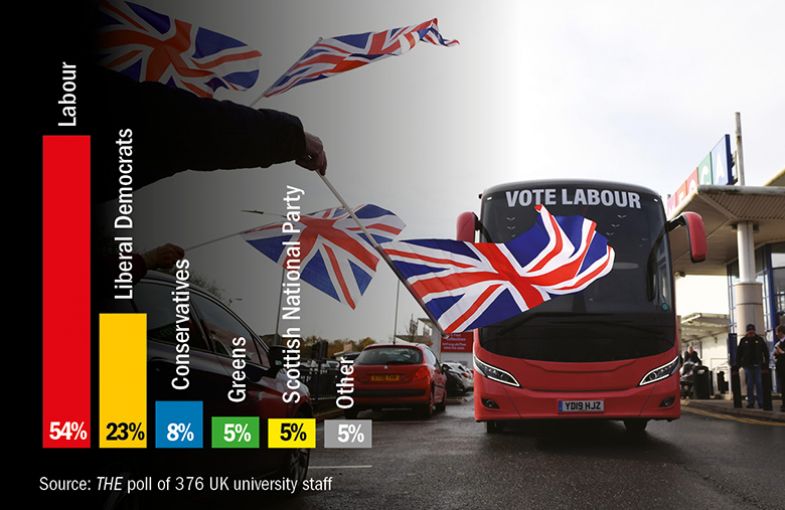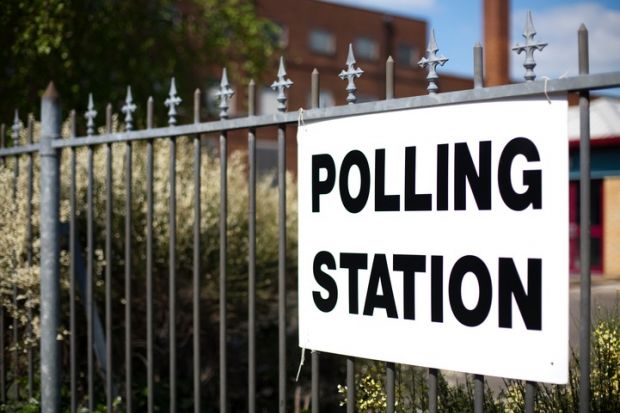Support for Labour among university staff appears to have held up compared with the last general election, with more than half once again saying they intend to vote for the party, according to a Times Higher Education survey.
But a number of responses suggest many academics and professional services staff are voting tactically, often in relation to Brexit, rather than on higher education policy.
THE received almost 400 responses to an online survey of UK staff about voting intention, with 54 per cent saying they intended to vote Labour in the 12 December general election.
Although the survey carries a major caveat of being self-selecting, it is almost exactly the same proportion of staff who said they would vote Labour in a similar THE survey run before the 2017 poll.
Snapshot poll breakdown

Support for the Liberal Democrats (23 per cent), Conservatives (8 per cent) and Greens (5 per cent) is also similar to two years ago.
However, other responses to the survey raise the question of whether Brexit and tactical voting may be taking greater precedence in choices this time.
Asked how Brexit will impact their decision on who to vote for, 64 per cent said it would be a significant factor compared with 27 per cent saying it would be a factor “to some extent” and 9 per cent saying “not at all”.
Higher education policy meanwhile was seen as significantly impacting decisions by only 35 per cent.
Support for Labour was higher among professional or support staff with 64 per cent saying they would vote for the party. Among academics, support for Labour was 46 per cent, with the Liberal Democrats much closer at 28 per cent.
Many of the comments left by staff completing the survey mentioned they would be voting tactically rather than through positive identification with any party’s policies.
“Save me from having to vote tactically this time,” was one comment, while another said: “Sadly it seems a case of picking the least worst party with the best chance of genuinely making an impact.”
However, Stephen Fisher, associate professor in political sociology at the University of Oxford, said mentions of tactical voting in such a survey may be because it was a prominent subject in the campaign this time, causing “availability bias” in responses.
Meanwhile, Nick Hillman, director of the Higher Education Policy Institute, said Brexit was possibly an even bigger issue in higher education than elsewhere due to its potential material impact in areas like research funding, but also because universities had been “at the heart of the debate…from the moment the referendum became inevitable”.
后记
Print headline: Labour remains sector favourite




